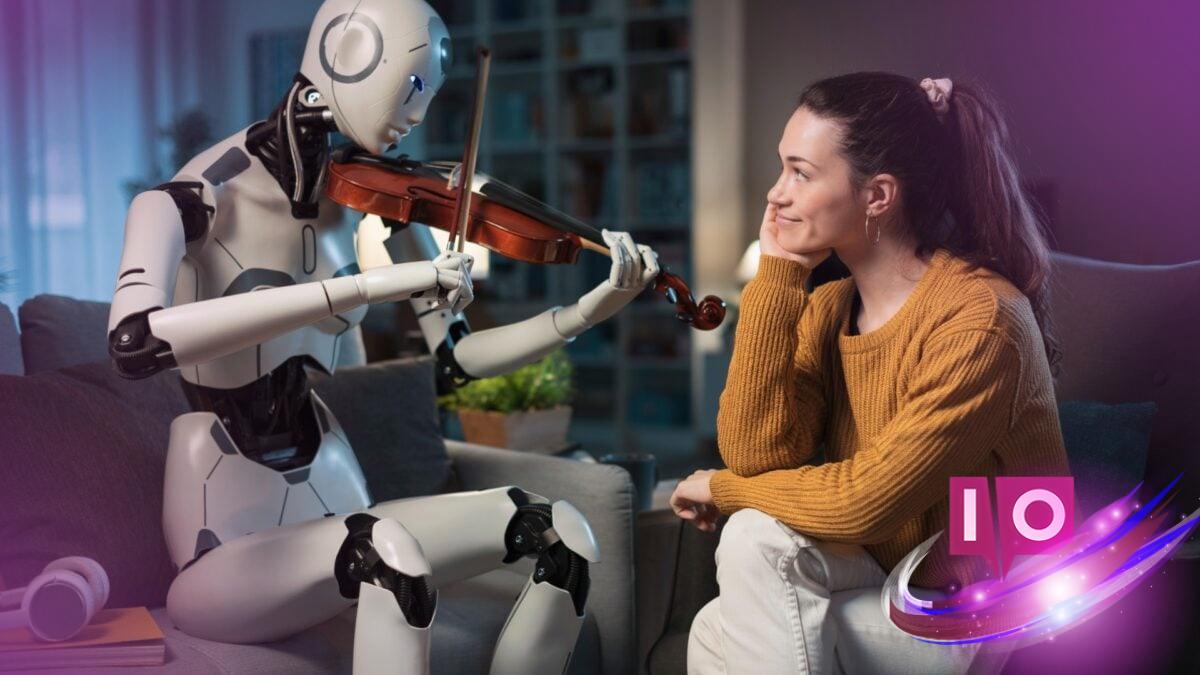If you thought AI-generated videos were getting eerily realistic, there’s another concern on the horizon: AI music. Recent findings reveal that most listeners struggle to distinguish between songs created by AI and those performed by human artists.
A survey by music streaming service Deezer, in collaboration with market research firm Ipsos, revealed that 97% of 9,000 participants from eight diverse countries—including the US, Canada, Brazil, the UK, France, the Netherlands, Germany, and Japan—were unable to identify which songs were AI-generated. This raises significant questions about the future of music creation.
Interestingly, reactions to these results were mixed. A slight majority—52%—felt uncomfortable about their inability to distinguish AI from human-made music. Conversely, 51% expressed concerns that AI might result in a rise of generic, low-quality music, often referred to as “AI slop.” Yet, 80% of respondents argued for clear labeling of AI-generated music.
The CEO of Deezer, Alexis Lanternier, emphasized, “The survey results clearly show that people care about music and want to know if they’re listening to AI or human-made tracks.” This sentiment echoes the larger conversation surrounding transparency in the music industry.
The topic gained prominence earlier when the AI-generated rock band, The Velvet Sundown, garnered a million streams on Spotify before its AI nature was unveiled. This incident prompted calls from artists for transparent labeling in music.
In response, Spotify announced that they would support a “new industry standard for AI disclosures in music credits.” However, as per recent observations, The Velvet Sundown’s artist page still lacks clear labels.
While Deezer has taken steps to label AI-generated content, nearly 28% of the music uploaded to its platform is identified as AI-generated. This finding highlights why listeners struggled to differentiate between AI and human compositions, as these AI systems learn from the intricate work of real musicians.
Lanterier pointed out, “There’s also no doubt that there are concerns about how AI-generated music will affect the livelihood of artists. Seventy percent of respondents believed that AI-generated music poses a threat to musicians’ livelihoods.” These concerns are particularly pressing as copyright laws struggle to keep pace with technological advancements.
In Europe, initial rulings suggest a possible shift in favor of artists. For instance, a German court recently ruled that OpenAI’s ChatGPT violated copyright laws by training its models on song lyrics. However, the situation is less clear in other regions. Earlier in the year, prominent British artists like Elton John and Dua Lipa advocated for amendments to ensure transparent use of their work, but those efforts failed.
In the US, high-profile artists, ranging from Billie Eilish to Aerosmith, collectively signed an open letter urging developers and digital service platforms to avoid undermining human artistry. Yet, recent advancements show that companies like Universal Music Group have reached out-of-court settlements with AI music startups like Udio and formed partnerships to create AI-driven products based exclusively on their catalogs.
Spotify continues to expand its AI capabilities. The platform employs AI to enhance its algorithms and has introduced features such as an “AI DJ” that provides commentary during music streaming. Additionally, Spotify is collaborating with major music labels to develop “responsible AI products.”
As the music landscape continues to evolve, the repercussions of AI become more pronounced. Human musicians not only rely on hit songs but also contribute to jingles, movie soundtracks, and background music that forms the fabric of daily life. The potential for AI to replace these vital roles raises serious concerns for those in the industry.
What makes AI-generated music difficult to identify? The primary reason is that these AI systems are trained on the creativity and hard work of human musicians, making it challenging for listeners to differentiate between them. This directly impacts the artistry and livelihoods of musicians.
Will AI take over the music industry? While AI technology is advancing, the sentiment from many artists suggests that human creativity remains irreplaceable. The future of music likely involves collaboration between artists and AI.
What are the concerns surrounding AI-generated music? Most prominent are the fears regarding the potential decline in music quality and the impact on musicians’ livelihoods. Transparency in labeling is essential for addressing these issues.
Should AI-generated music be labeled? A significant majority, 80%, supports clear labeling to distinguish AI-generated tracks from human-made ones. This enhances trust and informs listeners about what they are consuming.
As the music industry navigates this technological shift, the importance of transparency, creativity, and artistic integrity remains at the forefront. To continue understanding the landscape of music in the age of AI, explore more insights at Moyens I/O.
